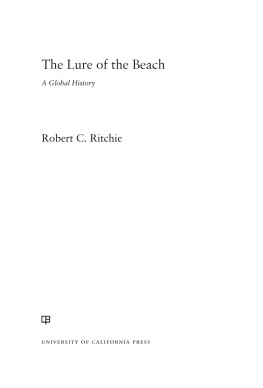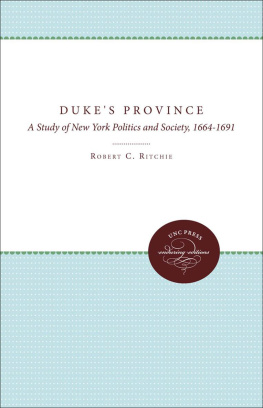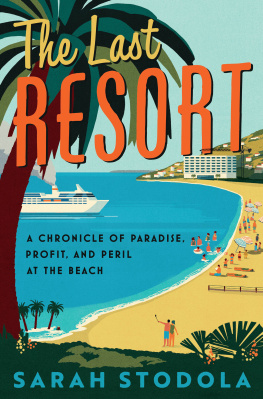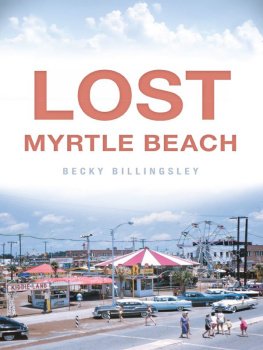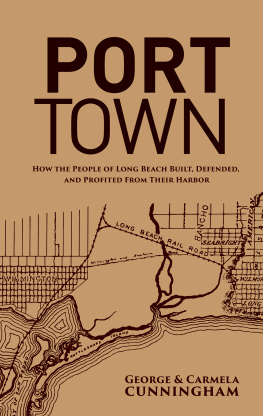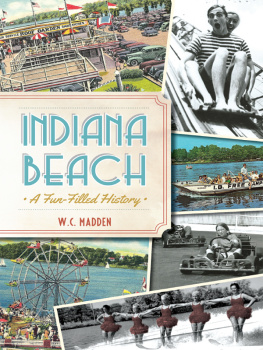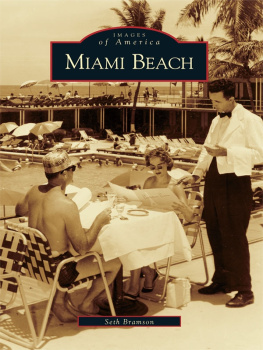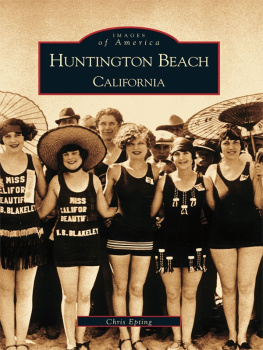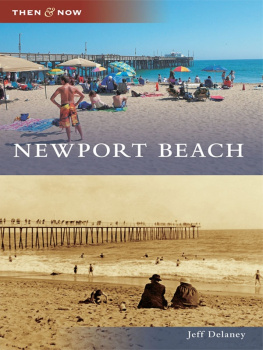The publisher and the University of California Press Foundation gratefully acknowledge the generous support of the Richard and Harriett Gold Endowment Fund in Arts and Humanities.
2021 by Robert C. Ritchie
Names: Ritchie, Robert C., author.
Title: The lure of the beach : a global history / Robert C. Ritchie.
Description: Oakland, California : University of California Press, [2021] | Includes bibliographical references and index.
Identifiers: LCCN 2020029260 (print) | LCCN 2020029261 (ebook) | ISBN 9780520215955 (hardback) | ISBN 9780520974654 (ebook)
Subjects: LCSH : BeachesSocial aspectsHistory.
Classification: LCC GB 454. B 3 R 57 2021 (print) | LCC GB 454. B 3 (ebook) | DDC 306.4/81909146dc23
Acknowledgments
With a project that has gone on as long as this one, I have acquired a number of obligations. There is no way I can sufficiently thank my friends and colleagues who have listened to my stories patiently even when, on occasion, they were repeated. So rather than having a long list of names, let me just note, you know who you are and I thank you very much.
Anyone writing about the history of the beach benefits from the scholarship of John K. Walton, Alain Corbin, Lena Lencek, and Jim Walvin. I know I have.
There are also individuals who have been important to the shaping of the final text. Lynne Withey (who was also there at the creation), Amanda Herbert, Jim Walvin, and Lena Lencek all read various versions and gave sound advice.
Because of my incompetence around computers, the Huntington IT department, especially Robert Studer, Jon Sims, Nathan Branson, and David Vorobyov, have saved me from my own blunders more often than I care to remember. Andie Reid was also my unfailing guide to various programs. Lindsey Hansen saved me from my initial folly of thinking that I could do it, by taking over the task of acquiring permissions. She also knew how to locate images that I had given up on ever finding. As my assistant when I was an administrator, Carolyn Powell made sure I had the time to work on this project. In the middle of a pandemic, Mona Shulman rescued my notes. There are many others on the Huntington Library staff who have assisted me in finding obscure references and old images. I thank them all.
Besides the Huntington Library, there are a number of other institutions that have helped me over the years by making their collections availablethe Library of Congress, the New York Public Library, the New York Historical Society, the British Library, and the Massachusetts Historical Society. Their staffs have also listened to my queries and offered sound advice, saving me no end of time.
Again, a long digestion means that many people have heard me go on about beaches in various settings. Most important, because of the commentary involved from the audience, were the Huntington Early Modern Britain Seminar, the Bay Area Early Americanists, the History Department Seminar at the University of California, San Diego, the McNeil Center at the University of Pennsylvania, the History Department Seminar at the University of California, Davis, the Program for British Studies at the University of Texas, and the Ohmohundro Institute at William and Mary.
I came to my editor Niels Hooper as a legacy, but he has been a sure guide in finishing the manuscript. Ben Alexander made certain the manuscript was readable.
Finally, this project could never have succeeded without the constant support of my wife Louise. As she has a more refined sense of the importance of the comma than I do, she has saved me from a host of infelicities.
Introduction
Come summer, the beach was the center of the world. For a typical Southern California teenager, the attractions were body surfing, lazing around, and girls. Summers went by in a blur of sun, sand, and surf before the water got cold and school beckoned. It was an idyll. Much later, having become an historian but fortunate to live in a beach town, I came to recognize there was a history of going to the beach. It was one of those moments when one realizes that something very familiarI still loved the beachalso had an intriguing past. Once aroused, this curiosity did not vanish but lingered. Did people in the past go to the beach for the same reasons I did, or did they seek other pleasures? This book, then, is my search of discovery. Why did people go to the beach and what did they do there? It started a long time ago.
The beach was the original end and beginning. The land was home for humanity, the sea the great unknown. The beach was the boundary and last place of safety for our distant ancestors before the restless sea crashed into the sand. The land nurtured them, while the sea promised little and remained a great mystery. Yet the shore attracted them. Perhaps it was the daily drama of sunsets and sunrises and the moods of the sea, but more likely it was access to food. During the summer, mussels, oysters, crabs, and fish were available and certainly varied their diets. Footprints in the sand, left thousands of years ago, mark their passage. Homo sapiens appear to have originated in the Okavango wetlands in present-day Botswana and moved under changing climate One can imagine them splashing around in the surf before retreating inland away from the storms of winter on the exposed beach. So we know that, however they perceived the ocean, the beach was a place of relative safety.
Our most ancient ancestors, then, walked upon the beaches and contemplated the sea until they finally took to the sea. With rafts and canoes, they could begin to fish and finally use the sea as a convenient way to explore other lands. The more time they spent at sea, the more they learned to read the moods of the ocean and placate the god who controlled those moods. Over time, more and more people came to accept the sea and build their habitations close to the beach. Some would even become sea people in that they lived on, and adapted to, the perils of the sea. Polynesians created the catamaran and with it ventured over hundreds of miles of open water in their Pacific Ocean migrations. As the oceans of the world slowly came to be the scene of more and more human endeavor, they also came to be regarded as a place of religious significance. Various cultures assumed there were gods or spirits who influenced the winds and the waves and appealed to them for a safe voyage or relief from storms.
Ocean water was also imagined to have special powers. Jews had an ancient ceremony, Tashlikh, where the community, at the new year, cast bread on the water in order to erase the sins of the last year. Many communities in France and England went to the sea every year to spend a few days splashing around in a rite of renewal. These are traditional practices that are tied not to medicinal theory, but to time-honored practice and superstition. The comfort brought to the practitioners was real and appreciated. The Romans, however, went further and created a haven at Biaie on the Bay of Naples where they found very many comforts of a more immediate sort, among them licentiousness, a reputation that would always be associated with resorts, where the restraints of ones community were loosened and bathing costumes exposed the body.

